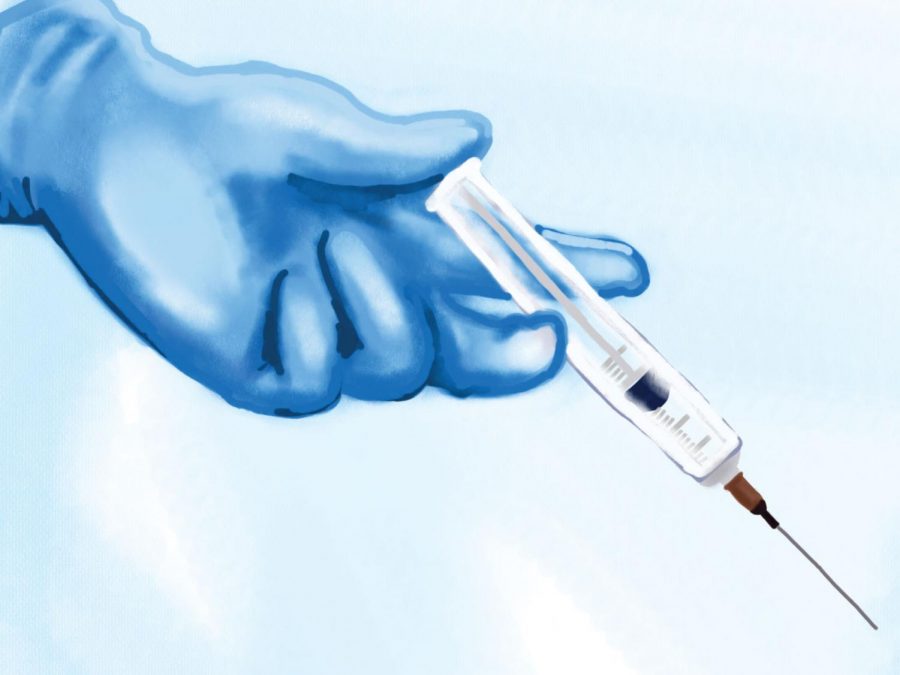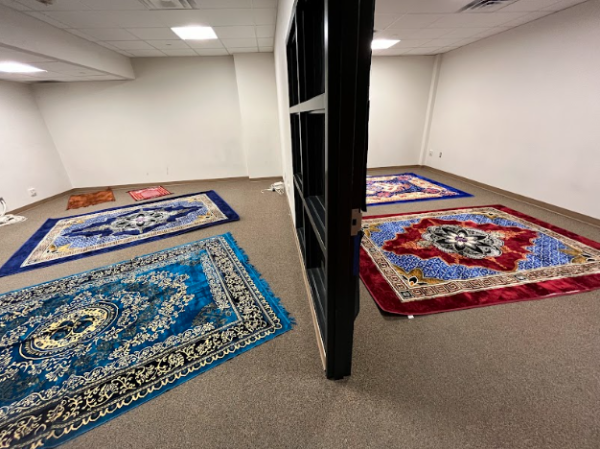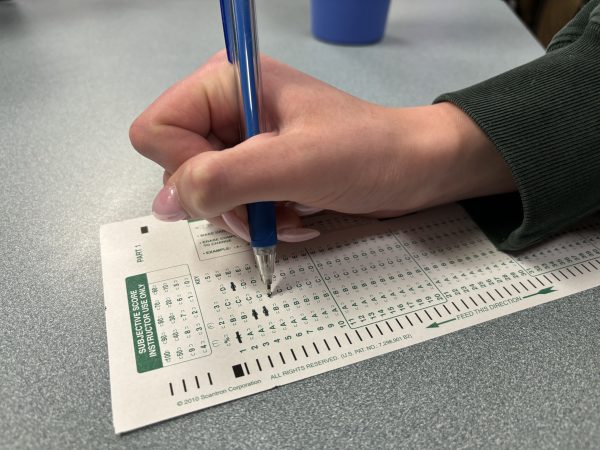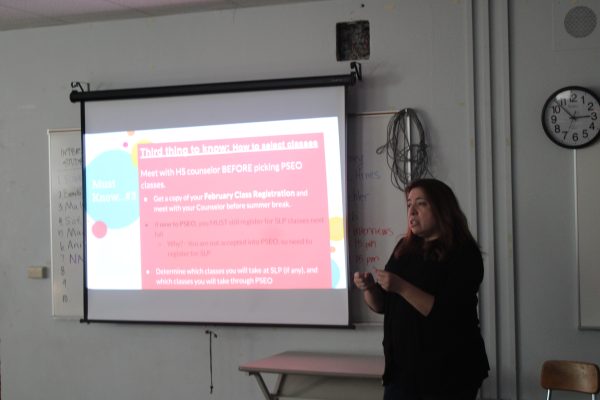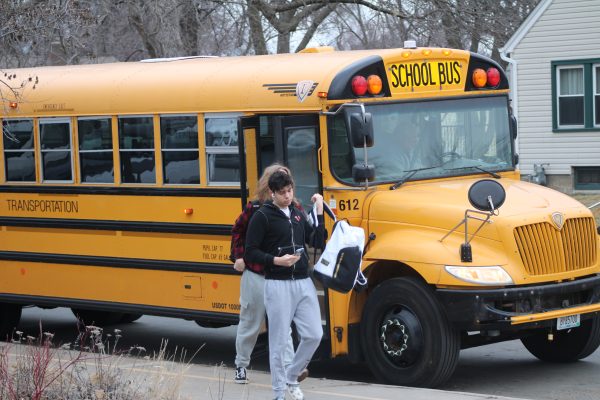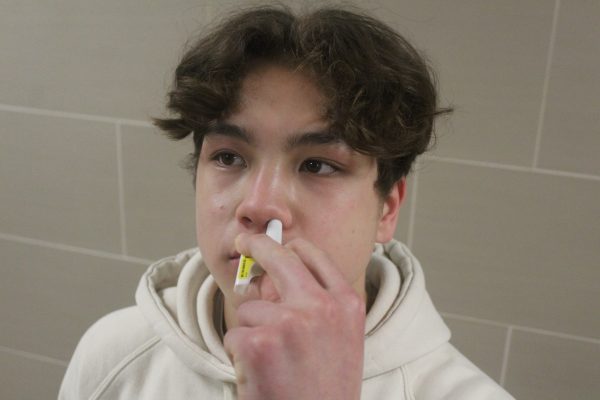Measles outbreak raises concerns
Vaccination proven beneficial for community
May 10, 2019
As the amount of measles infections continue to rise, biology teacher Julie Schilz said she believes the problem lies in the lack of education and common misconceptions.
“From my extensive knowledge on anti-vaxxers, they are upper-class white people who think they know more than doctors,” Schilz said. “The anti-vaccination movement is just people who are extremely entitled, to the point that they think they know better than their doctors.”
According to the Centers for Disease Control and Prevention, the number of measles cases reported so far this year has reached the highest point since it was declared eliminated in 2000 in the United States. According to the Des Moines Register, this increase sparked debate on whether vaccines should be required for everyone.
Sophomore Matthew Tucker said he acknowledges the risks associated with vaccinations, but believes that, overall, vaccines help more than harm.
“There are definitely risks associated with vaccines, but if you weigh in the benefits vaccines produce, you’ll see that they far outweigh the negatives,” Tucker said.
Schilz said vaccinations aren’t a private matter, but rather a public safety concern that affects everyone.
“It is medical health and a public health issue that is going to affect everybody. It should not be an option to decide to do what you think is best for your kid when there is medical evidence out there saying otherwise,” Schilz said.
According to the Star Tribune, 2.5 percent of students attending St. Louis Park elementary schools are unvaccinated.
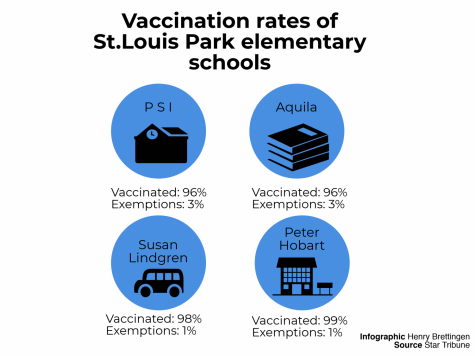
Sophomore Ella Miller said she believes the solution to the recent rise in measles outbreaks is widespread vaccination use.
“The measles outbreak is a worry, and it could become a larger problem than it is, but if we once again rely on vaccines, we’ll be able to prevent it,” Miller said.
According to Schilz, the anti-vaccination movement hurts the most vulnerable individuals in a population, such as babies, who cannot receive vaccinations until they are older. She said babies are not able to get the measle, mumps and rebella vaccines so babies are at increased risks.
“You can’t get the (measles, mumps and rubella) vaccine until you’re 1,” Schilz said. “So if you have a six- month old baby, you basically have to keep them quarantined away from people who would have been exposed to measles or who have measles.”
Schilz said people who are suffering from a disease will be even more susceptible, as they have weakened immune systems.
“People who have compromised immune systems, people undergoing chemotherapy, people who have autoimmune diseases and people who have health issues where they can’t get vaccinated are now exposed to the measles virus unnecessarily,” Schilz said.
Tucker said he hopes the current measles outbreaks will quickly subside before more people are infected by the deadly virus.
“Being vaccinated helps prevents outbreaks. Without (vaccines), diseases would spread like wildfire,” Tucker said. “I hope that through education about vaccines, these outbreaks will once again take their place in history.”



